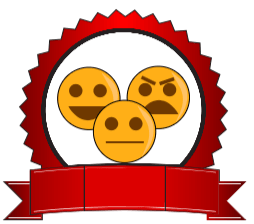Introduction

Photo by Pixabay from Pexels
Unfortunately, you can not simply sell random stuff on the Internet however you find it good for you. Before you start selling, you must devote the necessary time to research the standard rules which apply when it comes to e-Commerce. This way, you will be prepared for any situation that can occur in near future.
Although each European state has the right to establish certain national rules regarding e-Commerce and its implementation, there are common regulations, establishing standard rules in the EU on various issues that are defined in the EU's Directive 2000/31/EC on electronic commerce. In a nutshell, what you should know concerning the legal aspect of the e-Commerce is the following:
- In every EU country, electronic contracts must be given equivalent legal status to paper contracts.
- You must ensure to publish basic information on your activities (your details, the main characteristics of the goods/services you are selling, delivery and return options, information about payment, pricing and additional charges, conditions for resolving disputes, etc.) in a permanent and easily accessible form.
- You must ensure that advertising follows certain rules, such as that it is clearly identifiable as advertising, the person responsible for it is clearly identifiable, the promotional offers or competitions are clearly identifiable, and the conditions are easily accessible and presented in clear and simple terms.
- If you send out spam emails, you must regularly consult and respect opt-out registers, to which people who do not wish to receive such emails can sign up.
Make sure to include as much of the above-mentioned information as possible. You must ensure that your e-Commerce shop has basic and intuitive structure, so customers can easily navigate and find the necessary information. Also, do not forget to follow the General Data Protection Regulation and include a dedicated section concerning consumer rights.
Task

Photo by Breakingpic from Pexels
To be aware of the EU and national legal frameworks regarding e-Commerce is vital for the proper function of your online store. Especially when you are establishing a new business, you need to follow certain rules in order to comply with the current legal aspects of each country.
This is why, your task will be to fully focus on the legal framework of the e-Commerce, study the main documents establishing the rules in this area and make a list containing the most important findings.
You will be able to find detailed instructions on how to properly execute your task in the next "Process" section.
Process
The first thing you will need to do is to open the "Resources" section and load the two attached documents - Directive 2000/31/EC – Electronic Commerce in the EU and Directive 2011/83/EU - Consumer Rights in the EU. Go through each one of them and keep notes in a separate document, where you will synthesize the most important information that you need to take into consideration when launching your e-Commerce business.
The second thing that you will have to do is to open your Web Browser and search for already existing national legislation regarding e-Commerce which is applicable to your country only. Again, go through the document and take notes in the same file you did for the European directives.
At the end, synthesize and arrange the information in a way which you find the most convenient to follow and work with.
Now, having done the whole task, you should have a document containing the most important aspects regarding the legislation framework of the e-Commerce. This document will serve you as a guideline in setting up the last steps in the development of your online shop.
Conclusion
In order for an online store to be successful, it must be regulated by law and has a strong policy that provides to customers safety and reliability. To own online shop is serious engagement that requres serious attitude and attention to detail. You might have the best online platform that offers the best quality products or services, but if you are not prepared to settle disputes, for example, your clients will not have other choice but to leave negative feedback about you and your work, which can reflect the success of your sales.
Be careful, be responsible and have respect. Satisfied customers equals more sales. More sales equals good income.
Learning Outcomes
- 1.5 I can experiment with my skills and competences in situations that are new to me.
- 1.14) I can tell the difference between types of licences that can be used to share ideas and protect rights.
- 2.17) I can estimate the main accountancy and tax obligations I need to fulfil to meet the tax requirements for my activities.
- 3.8) I can identify different types of data that are necessary for monitoring the progress of a simple value-creating activity.









